
Messages
MP for Wythenshawe & Sale East
Dy CM, Bihar
How To Prevent Heart Disease?
BLOOD PRESSURE
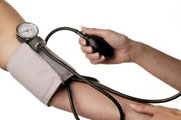 The only way to know what your blood pressure is to have it measured. But, for some people, the numbers our doctor or nurse gives us when taking our blood pressure mean little to us.
The only way to know what your blood pressure is to have it measured. But, for some people, the numbers our doctor or nurse gives us when taking our blood pressure mean little to us.
So, what is blood pressure and what do those measurements mean?
What is blood pressure?
Put simply, blood pressure is the pressure of blood in your arteries. Your heart is a pump that beats by contracting and relaxing. When your heart beats, it pumps blood around your body to give it the energy and oxygen it needs. As the blood moves, it pushes the sides of your blood vessels. The strength of the pushing is your blood pressure.
Blood pressure is measured in 'millimetres of mercury' (mmHg) and is written as two numbers. For example, if your reading is 120/80mmHg, your blood pressure is '120 over 80'.
What do the numbers mean?
Every blood pressure reading consists of two numbers or levels. They are shown as one number on top of the other.
- The first (or top) number is your systolic blood pressure. It is the highest level your blood pressure reaches when your heart beats.
- The second (or bottom) number is your diastolic blood pressure. It is the lowest level your blood pressure reaches as your heart relaxes between beats.
Your target is to have a blood pressure below 140/85. But,,if you've had a heart attack or stroke or if you have diabetes or have been diagnosed with coronary heart disease, then your blood pressure should be below 130/80.
You should have your blood pressure measured so that you know what your target is.
What is high blood pressure?
High blood pressure - or hypertension - means that your blood pressure is constantly higher than the recommended level. High blood pressure is not usually something that you feel or notice, but over time your heart may become abnormally large and beat less effectively.
High blood pressure puts extra strain on your arteries (and your heart) and this increases your risk of having a heart attack or stroke.
There isn't always an explanation for the cause of high blood pressure, but the following can play a part:
- not doing enough physical activity
- being overweight
- too much salt in your diet
- drinking too much alcohol
- not eating enough fruit and vegetables or,
- having a family history of high blood pressure.
What can I do to reduce my blood pressure?
If your doctor says you have high blood pressure, he/she is likely to encourage you to make some lifestyle changes to help reduce it. This may include:
- increasing your physical activity
- keeping to a healthy weight
- reducing the salt in your diet
- cutting down on alcohol and,
- eating a balanced, healthy diet.
If your blood pressure remains high, your doctor is likely to prescribe you medication to control it and to protect your heart.
Even if you don't have high blood pressure, making these simple lifestyle changes may help prevent you developing it in the future.
CHOLESTEROL
 What is cholesterol?
What is cholesterol?
Cholesterol is a fatty substance which is found in the blood. It is mainly made in the body.
Cholesterol plays an essential role in how every cell in the body works. However, too much cholesterol in the blood can increase your risk of heart problems.
There are various things you can do to control your cholesterol levels so read on to find everything you need to know about cholesterol, plus what you can do to tackle high cholesterol levels.
LDL cholesterol and HDL cholesterol
Cholesterol is carried around the body by proteins. These combinations of cholesterol and proteins are called lipoproteins. There are two main types of lipoproteins:
- LDL (low-density lipoprotein) is the harmful type of cholesterol.
- HDL (high-density lipoprotein) is a protective type of cholesterol.
Having too much harmful cholesterol in your blood can increase your risk of getting cardiovascular disease. The risk is particularly high if you have a high level of LDL cholesterol and a low level of HDL cholesterol.
Triglycerides
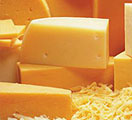 Triglycerides are another type of fatty substance in the blood. They are found in foods such as dairy products, meat and cooking oils.
Triglycerides are another type of fatty substance in the blood. They are found in foods such as dairy products, meat and cooking oils.
They can also be produced in the body, either by the body's fat stores or in the liver.
People who are very overweight, eat a lot of fatty and sugary foods, or drink too much alcohol are more likely to have a high triglyceride level.
People with high triglyceride levels have a greater risk of developing cardiovascular disease than people with lower levels.
What causes high cholesterol?
One of the causes of high blood cholesterol levels amount people in the UK is eating too much saturated fat.
The cholesterol which is found in some foods such as eggs, liver, kidneys and some types of seafood eg. prawns, does not usually make a great contribution to the level of cholesterol in your blood. It is much more important that you eat foods that are low in saturated fat.
However, some people have high blood cholesterol even though they eat a healthy diet. For example, they may have inherited a condition called familial hyperlipidaemia (FH).
For more information on FH, please download our booklet Reducing your blood cholesterol (see below under further information).
How can I reduce my cholesterol level?
To help reduce your cholesterol level, you need to cut down on saturated fats and trans fats and replace them with monounsaturated fats and polyunsaturated fats. You should also reduce the total amount of fat you eat.
Eat oily fish regularly. Oily fish provides the richest source of a particular type of polyunsaturated fat known as omega-3 fats which can help to lower blood triglyceride levels and also helps prevent the blood from clotting, and help to regulate the heart rhythm.
Eat a high-fibre diet. Foods that are high in 'soluble fibre' such as porridge, beans, pulses, lentils, nuts, fruits and vegetables, can help lower cholesterol. Please see our information on fibre.
Doing regular physical activity can help increase your HDL cholesterol (the 'protective' type of cholesterol).
Will eating sterol-enriched foods help reduce my cholesterol level?
There is evidence to show that substances called 'plant sterols' and 'stanols' may help reduce cholesterol levels. They are added to certain foods including margarines, spreads, soft cheeses and yoghurts.
Please see our information on plant sterols and stanols.
I've heard that eating too many eggs can raise your cholesterol - how many can I eat?
The recommendation on how many eggs you can eat has changed over the years and is a common source of confusion. In the past we recommended a restriction on eggs because we thought that foods high in cholesterol (including liver, kidneys and shellfish, as well as eggs) could have an impact on cholesterol levels.
However, as research in this area has developed so has our understanding of how foods that contain cholesterol affect people's heart health. This means we have changed our recommendation and there is currently no limit on the number of eggs that can be eaten in a week.
For most people, the amount of saturated fat they eat has much more of an impact on their cholesterol than eating foods that contain cholesterol, like eggs and shellfish. So, if you like eggs, they can be included as part of a balanced and varied diet.
Will I need to take medication?
Whether you need to take cholesterol-lowering drugs or not depends not just on your total cholesterol, HDL and LDL levels, but also on your overall risk of coronary heart disease.
Cholesterol-lowering medicines such as statins are prescribed for people who are at greatest overall risk of suffering from coronary heart disease. Please see our information on statins.
MANAGING YOUR WEIGHT
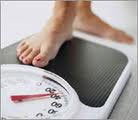 Being overweight affects you mentally and physically.
Being overweight affects you mentally and physically.
It can make you feel mentally low, leading to more overeating and it can lead to coronary heart disease and diabetes.
The extra weight itself may lead to wear and tear on your joints and cause symptoms such as pain and breathlessness, but it is never to late to lose weight.
Even losing just a little weight will help you feel more positive and reduce your risk of heart disease.
Losing weight
If you have been overweight for a long time, you have probably tried to lose weight several times in the past.
Some of your attempts may have worked for a while. But if you are still very overweight, it probably means that the changes that you tried to make were too hard to keep up forever.
An effective weight loss plan should involve regular physical activity and a healthy eating plan.
Avoid crash diets as these are not a healthy option, and you'll probably find it difficult to keep the weight off.
SMOKING
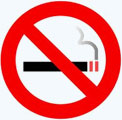 Take up the challenge and quit smoking.
Take up the challenge and quit smoking.
It's the biggest step you can take to reduce your risk of having a heart attack.
The facts about smoking and the heart
Smoking is one of the major causes of cardiovascular disease, and smokers are almost twice as likely to have a heart attack as people who have never smoked.
It can increase your risk of developing several different types of cancer and it's the main cause of some lung diseases.
How does smoking damage your heart?
Smoking harms your heart by:
- Damaging the lining of your arteries, leading to a build up of fatty material (atheroma) and a reduced space for blood to pass through.
- The carbon monoxide in cigarette smoke reduces the amount of oxygen that the blood can carry to your heart and body.
- The nicotine in cigarettes stimulates your body to produce adrenaline, which makes your heart beat faster and raises blood pressure, and results in your heart having to work harder.
- Making your blood more likely to clot.
All of these things increase the risk of developing coronary heart disease and having a heart attack or a stroke.
Is second-hand smoke harmful?
When non-smokers breathe in second-hand smoke - also known as passive smoking - it can be harmful. Research shows that non-smokers who live with smokers have a greater risk of heart disease than those who don't.
How can I give up?
Quitting smoking has huge health benefits and it's never too late to give up. Most smokers want to stop smoking, and 11 million people in the UK have given up successfully!
Some people find it hard to give up. Being determined is essential, but there are also things you can do to increase your chances of stopping.
Practical tips to help you stop smoking
- Make a date to give up and stick to it! Throw away all your tobacco, lighters and ashtrays.
- Draw up a plan of action. Think about what could help you stop smoking, such as using a nicotine-replacement product, and have it ready before the date you plan to quit.
- Keep busy to help take your mind off cigarettes. Try to change your routine, and avoid the shop where you normally buy cigarettes.
- Get support and let your family and friends know that you are quitting. Some people find that talking to friends and relatives who have stopped can be helpful.
- Treat yourself. If you can, use the money you are saving by not smoking to buy yourself something special.
Your doctor or practice nurse can give you advice on quitting and information on:
- Joining a stop-smoking clinic or stop-smoking group.
- Using nicotine-replacement products.
- Taking medication to help you stop smoking.
DIABETES
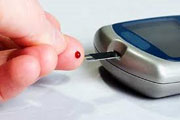 What is diabetes?
What is diabetes?
Diabetes means that there is too much glucose (sugar) in the blood. Your body usually produces glucose when you digest your food, and a hormone called insulin takes the glucose from your blood and helps it enter your cells where it used. As the insulin takes the glucose, your blood glucose level reduces. Diabetes develops when your body doesn't produce enough insulin, which leads to the level of glucose in your blood becoming too high.
Are there different types of diabetes?
Yes, there are two types:
Type one diabetes: your body cannot make insulin. This type usually affects children and young adults.
Type two diabetes: this is more common, and occurs when you can't produce enough insulin or it doesn't work properly. Type two diabetes tends to develop gradually as people get older - usually after the age of 40. It is closely linked with being overweight and not being physically active. People are also more likely to develop this condition if there is a family history of diabetes.
Almost two million adults have been diagnosed with diabetes in the UK, but this number is rising. Worryingly, type two diabetes is now being diagnosed in younger people. It is estimated that by 2010 about three million people will have been diagnosed with diabetes. Some ethnic groups have a much higher rate of diabetes - particularly people of African Caribbean and South Asian origin.
How is diabetes linked to heart disease?
Diabetes increases your risk of developing cardiovascular disease. High glucose levels can affect the artery walls, encouraging fatty deposits (atheroma) to develop. If you have diabetes, you are more likely to have high cholesterol levels and high blood pressure. Diabetes also increases the effect of some of the other risk factors for cardiovascular disease - such as smoking and being overweight.
What can I do?
If you don't have diabetes, you can greatly reduce your risk of developing it by controlling your weight and doing regular physical activity.
If you do have diabetes, it's very important to make sure that you control your blood sugar, blood pressure and cholesterol. This will help to keep your risk of cardiovascular disease as low as possible.
You can also:
- Do more physical activity
- Eat a healthy, balanced diet
- Control your weight and body shape
- Give up smoking
If you are diagnosed with diabetes, you may also need to take medication such as statins (a cholesterol-lowering medicine) to help protect your heart.
FAMILY HISTORY
 What is family history?
What is family history?
When your doctor is assessing your risk of cardiovascular disease, he/she will ask about your family history. You are considered to have a family history of cardiovascular disease if:
- your father or brother was under the age of 55 when they were diagnosed with cardiovascular disease or,
- your mother or sister was under the age of 65 when they were diagnosed with cardiovascular disease.
How does family history affect me?
If you have a family history of cardiovascular disease, you have an increased risk of developing the condition.
There are risk factors that increase your risk of getting coronary heart disease. These are related to lifestyle habits that are passed on from one generation to the next. These risk factors are:
- smoking
- high blood pressure
- high blood cholesterol
- physical inactivity
- being overweight or obese, or
- having diabetes.
Genes can also pass on the risk of cardiovascular disease, and they can also be responsible for passing on other conditions such as high blood pressure or high cholesterol levels.
Can I do anything about my family history?
Unfortunately there is nothing you can do about your family history. Having a family history of cardiovascular disease is a 'non-modifiable' risk factor - this means it's a risk factor that you can't change. But the good news is that even if you have a family history, you can reduce your risk of getting cardiovascular disease by:
- not smoking
- managing high blood pressure
- managing high blood cholesterol
- being physically active
- keeping to a healthy weight and body shape, and
- controlling diabetes, if you have it.
If you have family history of cardiovascular disease, make sure you tell your doctor. They may want to check your blood pressure and cholesterol. If you are over 40 years of age, you can visit your doctor and ask for a heart health check to find out your risk of getting cardiovascular disease.
Other factors
Your risk of developing cardiovascular disease also depends on other factors, such as your age. The older you are, the more likely you are to develop cardiovascular disease.
Also, certain ethnic groups have a different level of risk. South Asian people living in the UK are one and a half times more likely to die from coronary heart disease before the age of 75 than the rest of the UK population. Your age and ethnic background are also risk factors that you can't do anything about.
STRESS
 Stress is not a direct risk factor for cardiovascular disease, but it's possible that stress may contribute to it depending on your coping mechanism for stress.
Stress is not a direct risk factor for cardiovascular disease, but it's possible that stress may contribute to it depending on your coping mechanism for stress.
Some people cope with stress with destructive behaviour - such as smoking, drinking too much alcohol and overeating. These increase your risk of cardiovascular disease.
How does stress affect the heart?
There is no evidence to suggest that stress causes coronary heart disease or heart attacks, but if you have coronary heart disease and experience feelings of anxiety or are under lots of stress, it may bring on symptoms like angina.
A study, part funded by us, reveals working long hours in the office might mean you are more at risk of developing heart problems. It could be down to diet, high blood pressure, reduced sleeping hours, but also psychological stress.
What you can do?
Changing your lifestyle in a positive way can help you feel physically fitter and better able to cope with some of the demands put on you. A balanced diet and regular physical activity will help you cope with stress.
If you often feel stressed or anxious, it is important to learn how to relax. Some people find that physical activity, yoga or other relaxation techniques can help. You could make a list of things that help you to relax and schedule one every day.
There is plenty that you can do to manage stress or anxiety. You may need to identify situations that make you feel stressed at home or at work and try to avoid them if you can.
You may find it helpful to learn about techniques for managing stress. If you think you are stressed or very anxious, talk to your GP who will be able to help you decide on the best way to deal with it.
AIMS AND OBJECTIVES:
- To hold special Health Camps to detect Hypertension, Diabetes and Heart Disease.
- To arrange for further investigations and treatment especially for the poor class of the society.
- To arrange follow up with doctors for patients who are classed as Hypertensive or are detected to have Heart Disease.
- In due course run a Mobile Van to carry out our project especially in Rural Areas.




